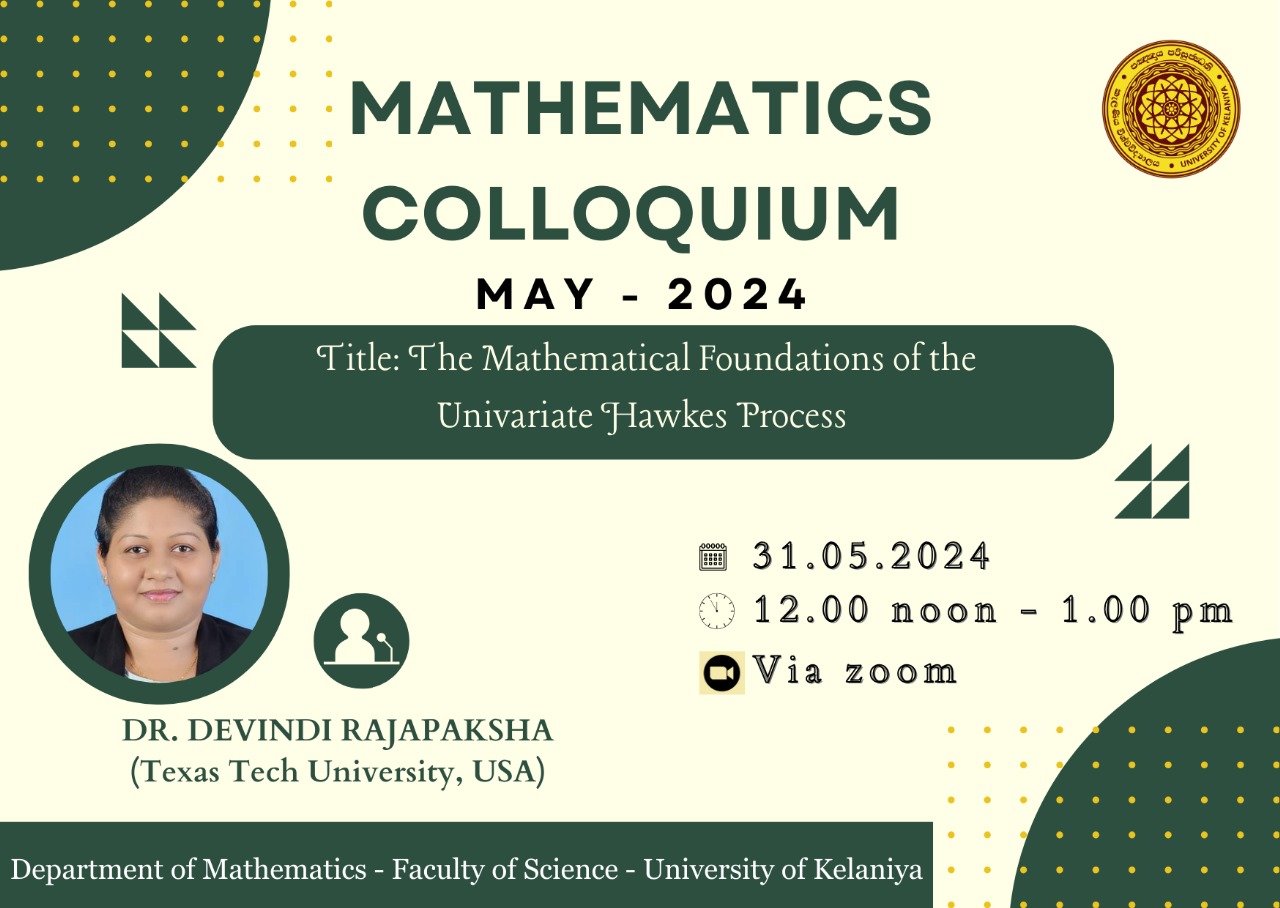Abstract:
The Univariate Hawkes Process, developed by Alan Hawkes in 1971, is a fundamental mathematical model for analyzing and predicting sequences where one event significantly influences subsequent events. we explore the mathematical underpinnings of the Univariate Hawkes Process and its broad applications across various fields such as finance, social media, seismology, and crime analysis.
We begin by introducing foundational concepts of point processes and counting processes. A point process is described as an increasing sequence of random times at which events occur, while a counting process records the number of events up to a specific time. Understanding the interplay between these processes is crucial for effectively modeling the temporal dynamics of events.
The Hawkes Process is notable for its self-exciting property, where the occurrence of one event probabilistically triggers additional events. This dynamic is quantitatively expressed through the conditional intensity function of the Univariate Hawkes Process. We further explore the components and properties of the Hawkes Process, including the background rate, triggering effect, decay rate, and response function. Special emphasis is placed on the exponential decay function, which vividly captures the aftermath of events and the gradual diminution of their probability impact over time. Alternative response functions such as the power-law decay function, Rayleigh function, and bi-exponential function allow the modeling of more intricate decay profiles.
Moreover, to illustrate the practical versatility of the Hawkes Process, various real-world applications and case studies are presented, including high-frequency trading, viral content spread on social media, aftershocks following major earthquakes, and patterns of gang violence. The advantages of the Hawkes Process in mathematics include analytical tractability, flexibility in modelling, robust parameter estimation, interdisciplinary applications, enhanced predictive accuracy, and mathematical elegance. By exploring the mathematical foundations of the Univariate Hawkes Process and its applications, this work aims to enhance understanding of self-exciting processes and their role in modelling complex real-world phenomena.
Profile:
Dr. Devindi Rajapaksha earned her PhD in Mathematics from the Department of Mathematics and Statistics at Texas Tech University, USA. She also has a Master's degree in Statistics from Texas Tech University and a Bachelor of Science Honours in Mathematics from the University of Kelaniya, Sri Lanka. Dr. Rajapaksha will start her career as an Assistant Professor of Statistics at the University of Wisconsin-Whitewater, USA.
Her primary research interests lie in the vast domain of Mathematics, with a keen focus on Statistics, Time Series Analysis and Data Analysis. Drawn to real-world problems, she employs statistical and mathematical methodologies to uncover latent patterns, decipher trends, and weave narratives from intricate data. Her ultimate aspiration is to translate these findings into actionable insights that can significantly influence data-informed decision-making processes.

